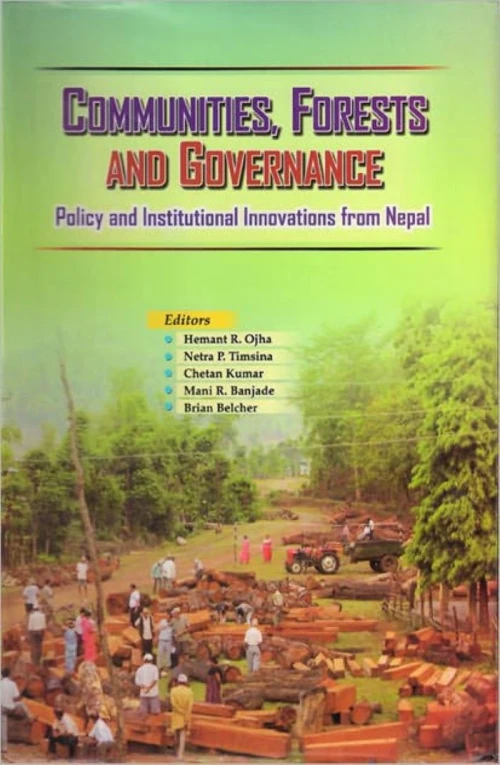Communities, Forests and Governance: Policy and Institutional Innovations from Nepal "Over the past few decades, Community -Based Forest Management (CBFM) has evolved as a key strategy of conservation as well as promoting local livelihoods, especially in the developing countries. Nepal has been designing various policies and programmes to support somewhat different but complementary strategies of CBFM over the past three decades.
This book draws from these experiences top document lessons from different CBFM initiatives that have taken place over the past few decades in Nepal. The book analyzes not only the dynamics of community-level interactions but also how policy and programme processes shape, determine and influence the practices and outcomes of community-based natural resource management activities. Together, the eight chapters of the book demonstrate the pitfalls and potentials of community-based and collaborative management programmes. In particular, the analysis highlights the slow progress achieved when programmes are implemented without a basic consensus on the broad framework for decision-making, making them highly contested in practice. The Nepal experience shows the importance of deliberation on policy and programme agendas with affected people, including local communities.
While community based approaches are often assumed to be more equitable, the case studies in this volume show the limits of devolution (moving power from state to community) and the importance of strengthening the capacity of community organizations to become effective and equitable managers of forests. At the same time, the cases show the degree of autonomy that is needed to provide the conditions for effective local-level collective action and resilient local institutions. Perhaps what is most important is that these stories show how, over time, community-based forestry programmes move beyond a narrow conception of a 'government programme', to an independent society.










